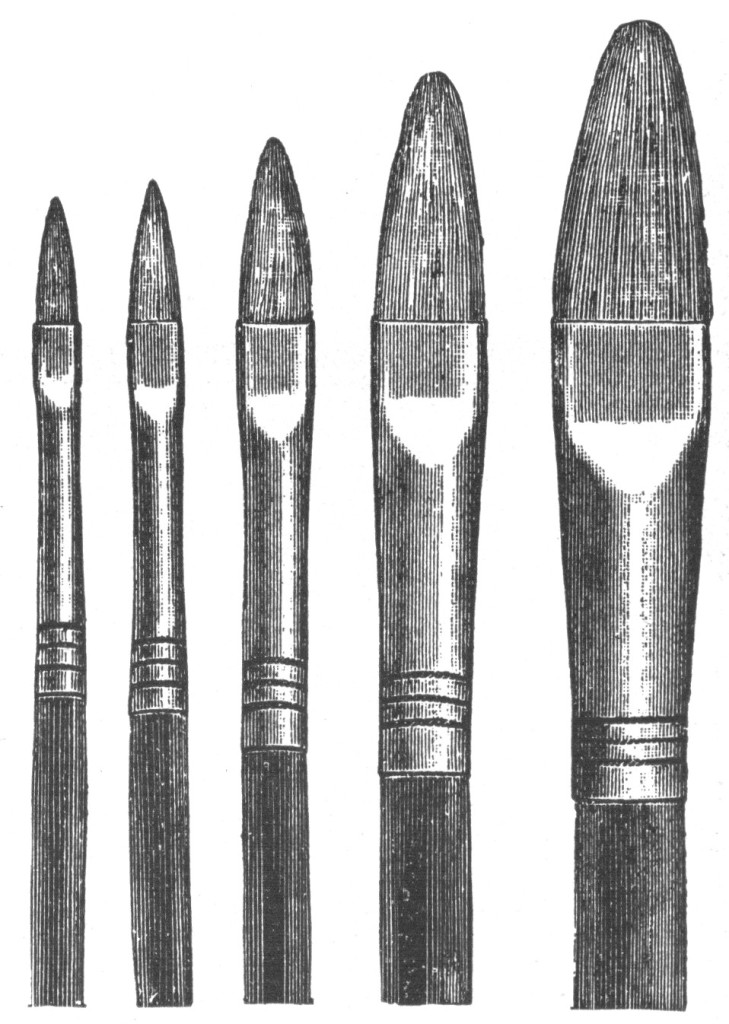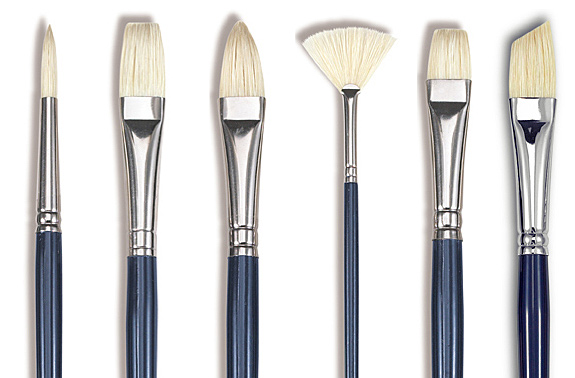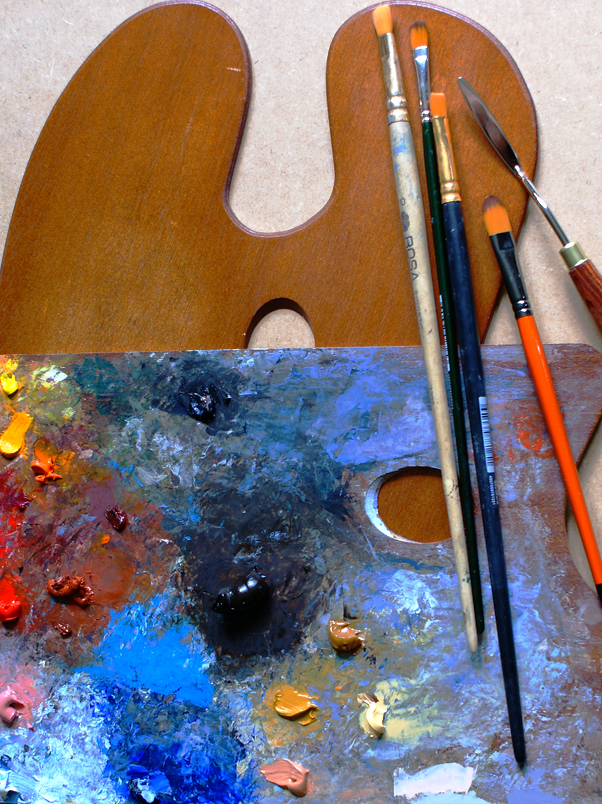On 22 Aug, 2012 With
Oil painting essential materials: Selection of BRUSHES Selection.—Never buy a brush without testing its evenness, as has been advised in the care of sables. Feel carefully the end of the bristles also, and see that the “flag” is there. All brushes are kept together for packing by paste in the bristles. See that this is soaked off before you test your brush. Round or Flat.—It will make little difference whether you use round or flat brushes. The flat brush is most commonly preferred now, and most brushes are made that way. So you had better get that kind, unless you have some special reason for preferring the round ones. Handles.—Whether the handles are nicely polished, also, is of no importance….
Read More
On 19 Aug, 2012 With
Oil painting essential materials: Bristle and Sable BRUSHES Bristle and Sable.—The brushes suitable for oil painting are of two kinds,—bristle and sable hair. Of the latter, red sable are the only ones you should get. They are expensive, but they have a spring and firmness that the black sable does not have. Camel’s hair is out of the question. Don’t get any, if you can only have camel’s hair. It is soft and flabby when used in oil and you can’t work well with such brushes. The same is true of the black sable. But though the red sablesare expensive, you do not need many of them, nor large ones, so the cost of those you will need is slight. …
Read More
On 17 Aug, 2012 With
Oil painting essential materials: BRUSHES An old brush that has been properly cared for is generally better than a new one. It seems to have accommodated itself to your way of painting, and falls in with your peculiarities. It is astonishing how attached you get to your favorite brushes, and how loath you are to finally give them up. What if you have no others to take their places? Don’t look upon your brushes as something to get as few of as possible, and which you would not get at all if you could help it. There is nothing which comes nearer to yourself than the brush which carries out your idea in paint. You should be always on the…
Read More
On 1 Aug, 2012 With
How to economize on Oil Painting Tools There is a false implication in the saying that “a poor workman blames his tools.” It is not true that a good workman can do good work with bad tools. On the contrary, the good workman sees to it that he has good tools, and makes it a part of his good workmanship that they are in good condition. In painting there is nothing that will cause you more trouble than bad materials. You can get along with few materials, but you cannot get along with bad ones. That is not the place to economize. To do good work is difficult at best. Economize where it will not be a hindrance to you. Your…
Read More




